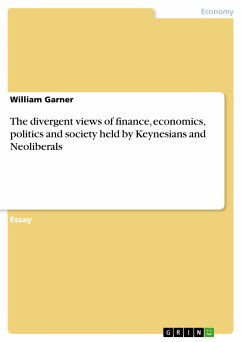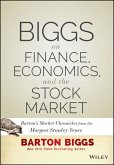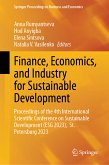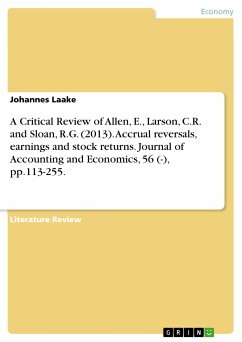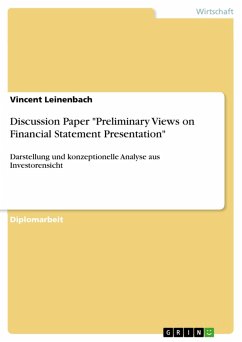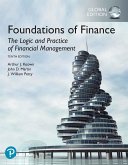Essay from the year 2015 in the subject Business economics - General, grade: 2:1, De Montfort University Leicester, course: International Business and Globalisation, language: English, abstract: To understand the divergent views relating to Keynesians and Neoliberals, it is first important to define the two economic groups. (Princeton) regards Keynesianism as "the economic theories of John Maynard Keynes who advocated government monetary and fiscal programs intended to stimulate business activity and increase employment" defines Neoliberalism as a "Late-twentieth century variant of theory that competition among businesses in market with limited state regulation best fosters growth; specifically, advocacy of free enterprise in competitive global markets and movement of goods and capital unburdened by tariffs and regulations..." (Bourdieu; cf. Treanor). To understand the divergent views on finance, economics, politics and social policies of Keynesians and Neoliberals, these four policies therefore need to be broken down, explained and analysed.
Dieser Download kann aus rechtlichen Gründen nur mit Rechnungsadresse in A, B, BG, CY, CZ, D, DK, EW, E, FIN, F, GR, HR, H, IRL, I, LT, L, LR, M, NL, PL, P, R, S, SLO, SK ausgeliefert werden.

